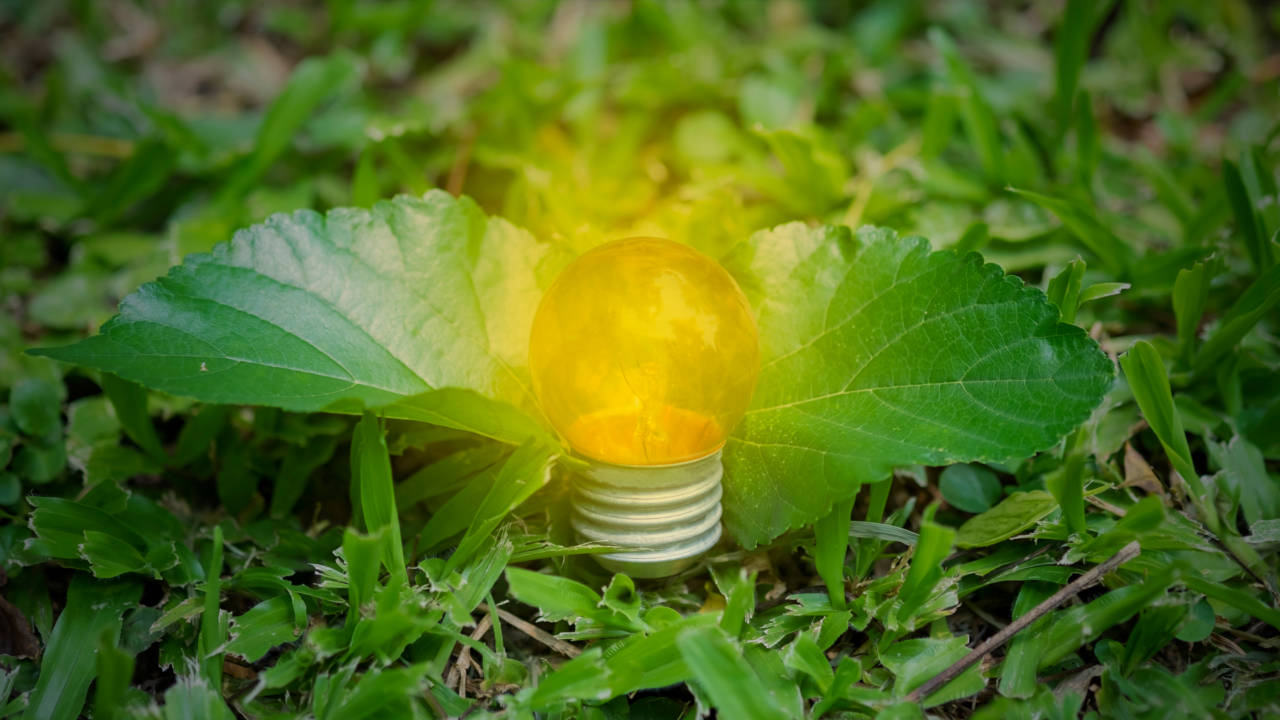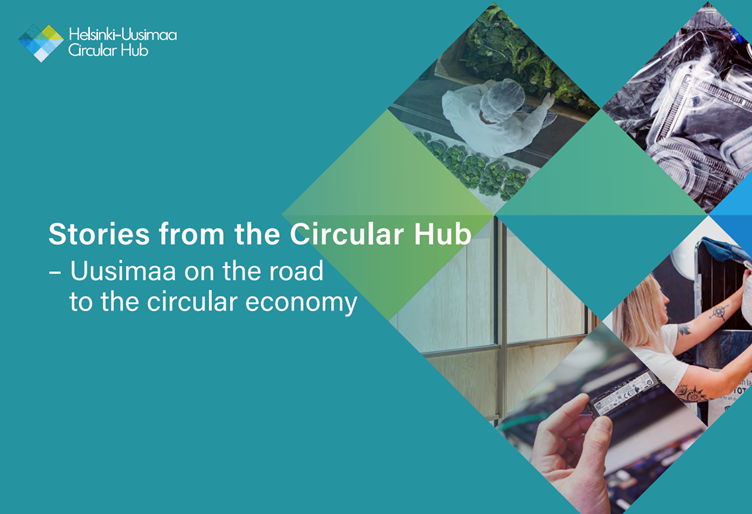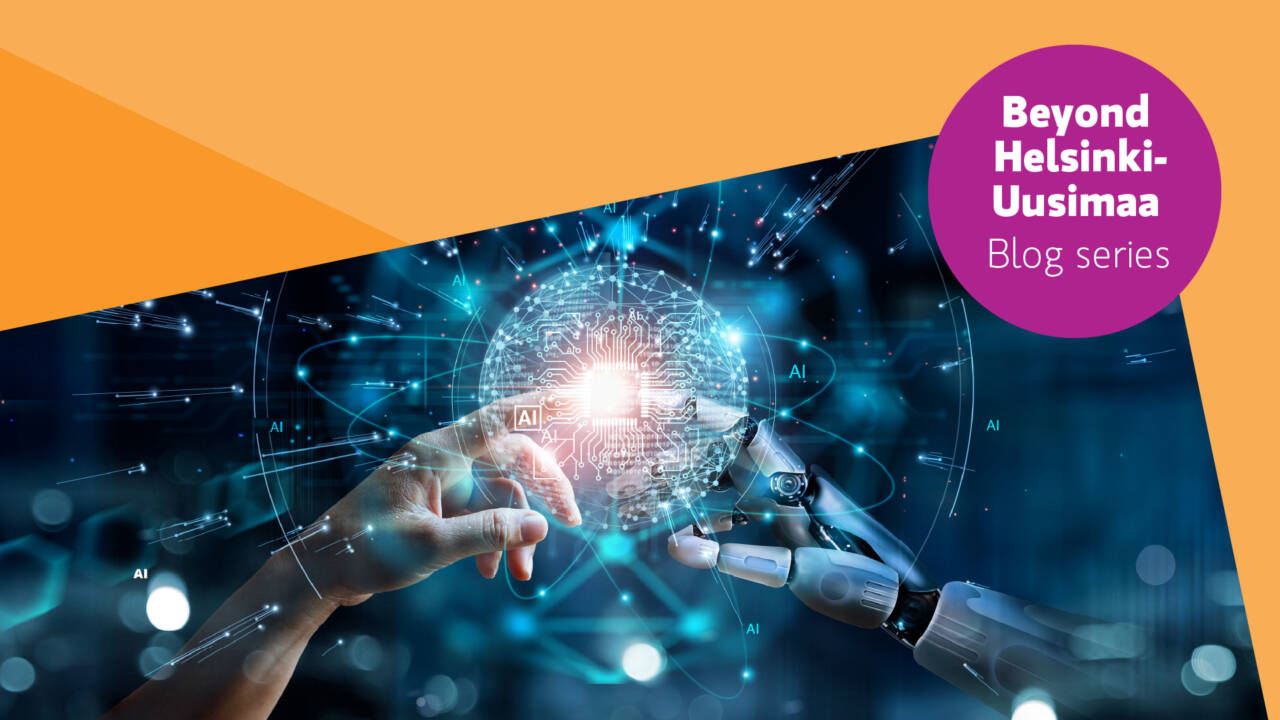Helsinki-Uusimaa at the forefront of adaptation and circular economy

The Helsinki-Uusimaa Region has applied to be one of the pioneers implementing both the EU Mission Adaptation to Climate Change and the EU Circular Cities & Regions Initiative with the focus on furthering circular systemic solutions. Earlier this spring, the cities of Espoo and Helsinki were selected by the European Commission to implement the EU Climate-Neutral and Smart Cities Mission together with other pioneers.
Helsinki-Uusimaa wishes to also be Well Ahead in adaptation
Next year, with its preparation of a regional adaptation plan kicking off, our Region intends to widen its climate actions to improve our adaptation to climate change. To support this work, Helsinki-Uusimaa applied to become a pioneer in the EU Mission Adaptation to Climate Change. This Mission is now a part of the Horizon Europe, which is the EU’s research and innovation programme.
The Mission aims at helping its pioneer cities and regions to better understand, prepare and manage climate risks. The regions joining the Mission sign the Mission Charter to express their wish to become climate resilient by 2030, that is to participate in the Mission Adaptation and prepare better for the climate change.
–We decided to apply for the possibility to participate in the EU Mission Adaptation to Climate change to express our aim to be Well Ahead in this field and to get support for our adaptation actions, Climate Change Adviser Simo Haanpää says.
This is one of five EU Missions altogether. EU Missions are a new way to bring concrete solutions to some of our greatest challenges, such as fighting cancer, protecting our seas and adapting to climate change together. They are a new way to create new ideas and bring concrete solutions to some of our greatest challenges and receive funding from the Horizon Europe Research and Innovation Programme for the years 2021-2027. To get funding for adaptation projects in line with a Mission, you do not need to take part in it, but any eligible stakeholder can apply for it, as long as the program criteria are filled.
Participants of this Mission collaborate by exchanging experiences and information. Furthermore, they get information and data for risk evaluations and information about funding possibilities. The Mission also implements the EU Adaptation Strategy from regional points of view. It will help the chosen regions and local authorities to better understand, prepare for and manage climate risks, as well as to develop innovative solutions to build resilience.
Espoo and Helsinki among one hundred forerunner cities
Earlier this spring, the cities of Espoo and Helsinki were selected to take part in the Mission aiming at ‘100 climate-neutral and smart cities by 2030’. The cities of Lahti, Lappeenranta, Tampere and Turku were chosen from Finland, as well. The cities chosen to the Mission represent all member states and they are expected to set a good example to others.
They will get tailored advice and given the possibility to seek for financing and join piloting projects. The Mission also provides networking opportunities, exchange of best practices between regions and local authorities, and support to engage citizens.
Helsinki-Uusimaa wishes to be at the forefront of circular economy
The Circular Cities and Regions Initiative furthers the circular economy across European cities and regions. Helsinki-Uusimaa has expressed its interest in becoming a Circular Cities and Regions Pilot. Regionally, this would support the Circular Valley that has been planned. Regional themes would include textiles, plastics and the building sector. This initiative is launched by the EU, and it is implementing its Circular Economy Action Plan.
–Being a CCRI Pilot would give us guidance and help from experts to evaluate our current plans and to identify our essential value chains. We could then collaborate with other stakeholders, access and exchange information and knowledge, Senior Adviser Venla Virkamäki states.
Finland aims to be a pioneer in Circular Economy and Helsinki-Uusimaa plays in many ways a significant role in reaching this goal.
–Our regional possibilities to further and develop circular economy are good. But there is certainly still a lot to be done to get the entire region to collaborate fully. Ms Virkamäki tells us that the Council is now looking for support from circular economy experts within the EU to strengthen the regional innovation ecosystems.
For more information, please contact:

Simo Haanpää
Adviser, Climate Change
simo.haanpaa@uudenmaanliitto.fi
Climate change adaptation, Regions4Climate Project

Venla Virkamäki
Innovation Manager
venla.virkamaki@uudenmaanliitto.fi
Development of R&I and international marketing, Strategy for smart specialisation, EU cooperation. Deputy for Director of Regional Development Eero Venäläinen.
Take also a look at these
 News
News
1.7.2025
Helsinki Regional Council committing to green deal agreement: reducing the use of natural resources to the level of 2015
Circular economy is no longer a mere environmental accomplishment - it is also about competitiveness, security of supply and generally, savings. To promote a sustainable resource-wise future, the Helsinki-Uusimaa Regional Council has joined a regional green deal for circular economy. The green deal is a voluntary commitment in which the participating municipalities are offered support for concrete actions and gives them new opportunities to find solutions and start pilot projects.
 News
News
26.6.2025
Stories from the Circular Hub – Helsinki-Uusimaa on the road to circular economy
More and more sectors are now furthering a transition to circular economy. The Helsinki-Uusimaa Circular Hub was an import cooperation platform for circular economy solutions in the Helsinki-Uusimaa Region, founded in 2023. Highlights from the first project years of the Circular Hub have now been put together in the publication Stories from the Circular Hub, raising both the updates of the sectors and the actors of the regional Hub.
 News
News
23.6.2025
Helsinki-Uusimaa: EU bioeconomy must be developed within the limits of nature’s carrying capacity
The European Commission is currently preparing a new bioeconomy strategy that will set guidelines for a functioning circular economy, sustainable production, bio-based products and consumption in Europe. The Helsinki-Uusimaa Regional Council, in cooperation with the Helsinki EU Office and regional stakeholders, has prepared a position paper summarising views on the Commission's upcoming bioeconomy strategy.
 Blog
Blog
28.5.2025
Meet Aino: The First AI Native Generation in Helsinki-Uusimaa Region
Welcome to 2050. The world may look familiar, but beneath the surface, algorithms shape nearly every aspect of life. A new generation has grown with artificial intelligence (AI) as ordinary as electricity. This is the first truly AI-native generation raised in an 'algorithmic future,' a world where complex systems tailored to individual preferences guide decisions, deliver services, and influence relationships. In her blog post Senior Adviser Christine Chang considers how AI is shaping human behaviour, education, and daily life.